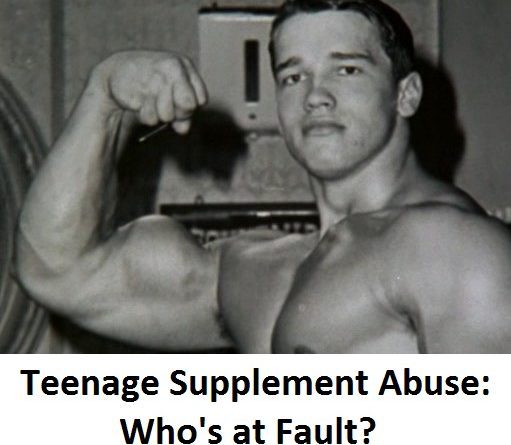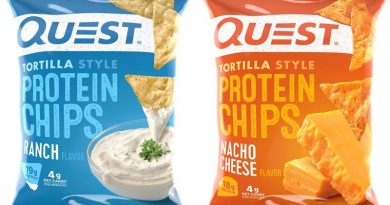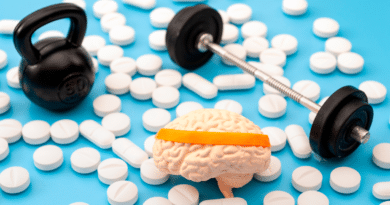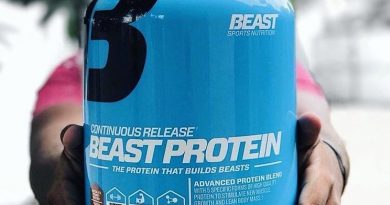Teenage Supplement Abuse: Who’s at Fault?
When a 2016 Wall Street Journal article accused the sports nutrition industry of “marketing to minors,” it created a stir. But as someone who has dedicated his career to fitness and nutrition, I can tell you the issue of teenage supplement abuse is far more complex than a single headline. The real question isn’t just about marketing; it’s about education, responsibility, and understanding where the fault truly lies.
Disclaimer: This article is for informational purposes only and is not meant to treat or diagnose any condition. It is recommended that you speak with your doctor before starting any exercise program, changing your daily nutrition, or adding any supplements to your regimen.
Table of contents

Teenage Supplement Abuse is Real
Let’s be clear, teenage supplement abuse is a serious issue. As a certified sports nutritionist and trainer, I’ve spent over a decade in the supplement industry, and I’ve seen firsthand how seriously reputable companies take safety. Recent data shows that around 34% of children and adolescents in the U.S. use dietary supplements, so the conversation is more important than ever.
At every trade show I’ve attended, manufacturers are strictly forbidden from giving samples to anyone who appears to be under 18. This isn’t just a suggestion; it’s a hard rule, even with a parent present. The industry has self-regulating bodies and certifications, like NSF Certified for Sport, which tests products for over 280 banned substances to ensure safety for athletes. Responsible brands are committed to this level of scrutiny.
Let’s Talk on the Record
So, if manufacturers are putting “not for use by individuals under the age of 18” on their labels, where does the breakdown happen? The conversation has to start with parents and guardians. Are you monitoring your teen’s online purchases or what they’re buying at the local GNC or Vitamin Shoppe?
It’s impossible for a manufacturer to police every single online transaction. The blame often placed on them overlooks the personal responsibility of retailers and, most importantly, the role of parents in guiding their children’s choices. This isn’t about shame; it’s about awareness and open communication.
Deceptive Marketing Increasing Teenage Supplement Abuse?
The claim that companies are directly marketing to teens is misleading. You won’t find ads with 15-year-olds promoting pre-workouts. However, the influence of social media platforms like TikTok and Instagram has created a gray area. Teens see their favorite fitness influencers—who are often sponsored by supplement brands—using these products, and they naturally want to emulate them.
This is indirect marketing, and it’s powerful. While a brand like Optimum Nutrition or MuscleTech isn’t creating ads for kids, the visibility of their products in the hands of young, successful athletes creates a strong pull. This is less about deceptive practices from the companies and more about the culture of social media that we all need to be aware of.
Regulating Supplement Manufacturers
It’s true that the FDA regulates supplements differently than prescription drugs. This is mandated by the Dietary Supplement Health and Education Act of 1994 (DSHEA). Under DSHEA, manufacturers are responsible for ensuring their products are safe and properly labeled before they go to market.
The FDA has the authority to take action against any misbranded or adulterated product *after* it’s on the market. Go pick up a product from major brands like MET-Rx, Body Fortress, or NatureSmart. You’ll find clear warnings on the label stating they are not for minors. This is standard practice.
Contrast this with the tobacco or alcohol industries, which are heavily regulated yet still see significant underage use. The focus on sports nutrition feels misplaced when far more dangerous and addictive products are a much larger public health issue.
What’s the IOC’s Take on Teenage Supplement Abuse?
The International Olympic Committee (IOC) and other major bodies like the American Academy of Pediatrics (AAP) are clear on this. The AAP advises against the use of performance-enhancing supplements for anyone under 18, stating that most offer little benefit and can carry significant risks. They recommend focusing on nutrition, hydration, training, and rest.
From my experience, the pressure often comes from coaches or trainers pushing young athletes to gain size or lose weight quickly. This is where the danger lies, not in a company’s marketing plan. It’s a failure of leadership at the team level, pushing teens toward shortcuts they aren’t physically or emotionally ready for.
Natural Teens Are Turning To Supplements, Causing Accidental Abuse
The simple truth is most teenagers don’t need ergogenic aids. Their natural testosterone levels are already optimized for building muscle and recovering quickly. Introducing high-stimulant products can do more harm than good.
Many issues arise from pre-workouts or fat burners with high doses of caffeine. A single serving can contain 300mg of caffeine or more, which is equivalent to nearly three cups of coffee. For a teen who isn’t used to stimulants, or who may have an undiagnosed sensitivity, this can lead to serious issues like heart palpitations and anxiety.
The problem isn’t the supplement itself; it’s the misuse by an age group that shouldn’t be using it in the first place. The responsibility falls on parents, coaches, and young athletes to get educated and prioritize health over hype.
Frequently Asked Questions About Teenage Supplement Abuse
Is creatine safe for teenagers?
While creatine is one of the most researched supplements, most studies are on adults. The American Academy of Pediatrics does not recommend creatine use for athletes under 18 due to the lack of long-term safety data and potential kidney risks.
What supplements should a teenager avoid?
Teens should avoid any “pro-hormones,” high-stimulant pre-workouts, and fat burners. Many of these products contain ingredients like synephrine or excessive caffeine that can cause serious side effects, including elevated heart rate and blood pressure.
How can I tell if a supplement is safe?
Look for third-party certifications on the label. Seals from organizations like NSF Certified for Sport or Informed-Choice mean the product has been independently tested for banned substances and contaminants. This is the best way to ensure what’s on the label is what’s in the bottle.
Do I need supplements to build muscle as a teen?
No. The best way for a teen to build muscle is through proper training, a balanced diet rich in protein and complex carbs, and adequate sleep. At this age, your body’s natural hormones are already primed for muscle growth without needing supplements.


*Disclosure: This article may contain affiliate links or ads, which means we earn a small commission at no extra cost to you if you make a purchase through these links. These commissions help support the operation and maintenance of our website, allowing us to continue producing free valuable content. Your support is genuinely appreciated, whether you choose to use our links or not. Thank you for being a part of our community and enjoying our content.
PLEASE CONSIDER SHARING THIS ON YOUR SOCIAL MEDIA TO HELP OTHERS LEARN MORE ABOUT THIS TOPIC.





